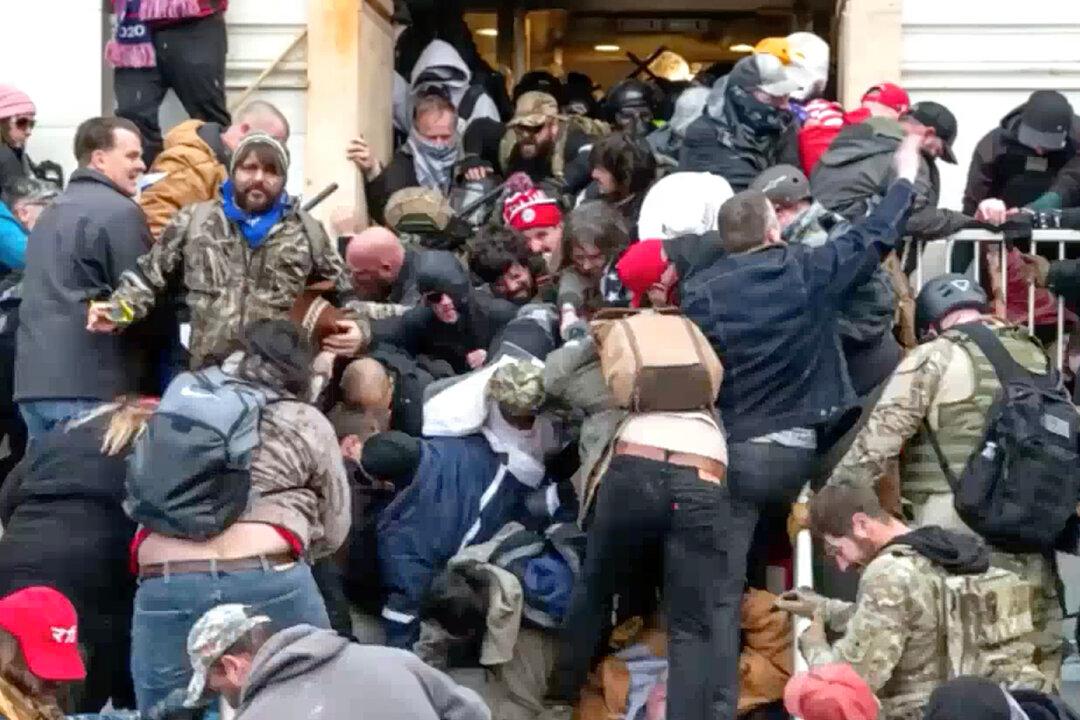A federal judge has thrown out a felony obstruction charge leveled against a Jan. 6 defendant, saying the man’s alleged conduct doesn’t fall under the statute used by prosecutors in dozens of cases related to the 2021 breach of the U.S. Capitol.
U.S. District Judge Carl J. Nichols dismissed one of the 12 counts against defendant Garret A. Miller, 35, of Richardson, Texas.





